Protein Bloat Unveiled: Understanding the Protein-Shake Dilemma
Author: Daniel Agarwal
It wouldn’t be an exaggeration to say we are living in an era of protein shakes. No matter if you hit the gym, go for an occasional run or are interested in losing some pounds, most people stumble into the world of protein shakes sooner or later. They are a quick and convenient way to boost your recovery, provide extra nutrients and satiate your appetite. However, you are not alone if your post- workout shake results in a bloated stomach or other digestive issues. In this blog we will be tackling why this occurs and how you can prevent the „protein bloat“ without skipping any of the protein.
What is bloating?
Bloating is caused by the stomach or intestine being filled with gas. This leads to the uncomfortable feeling that your belly is full or being stretched. A bloated stomach can manifest in many ways such as, stomach pain, a swollen abdomen, stomach growling or flatulence (extra gas). A bit of bloating is perfectly natural with studies indicating that 10-25% of healthy people experience occasional bloating. The length of a bloating episode depends on your diet, lifestyle and gut microbiome but it can persist anywhere from minutes to several days. It can usually be traced back to some digestive problem such as constipation or food intolerance. Many people will experience bloating at one point or another, but this is usually no reason for concern. However, the NHS recommends consulting your GP if you have had a bloated stomach for more than 3 weeks or if you experience bloating more than 12 times a month.
How to ease a bloated stomach?
There are a couple of methods to help your bloated stomach in the short term. Hydration is crucial because it can flush out toxins involved in bloating and stimulate bowel movements. Additionally, a bit of light exercise such as going for a walk or bike ride can also help release internal gases and reduce bloating. Peppermint has been used for digestive disorders since Ancient Greece times and even modern studies support that it can lower bloating by helping the bowel wall relax. All of this considered, the best approach is to prevent bloating in the first place. To do this let’s have a look at why most protein-shakes cause bloating.
Lactose intolerance and whey protein
Whey is one of the most common protein sources in protein shakes and is abundant in lactose. Lactase enzymes usually break down lactose into glucose and galactose to be absorbed into the bloodstream. However, lactose intolerant individuals lack such lactase enzymes which leads to undigested lactose sitting in their gut. Gut bacteria ferments this lactose which produces gases and fluid in the gastrointestinal tract. This can cause bloating, diarrhea and nausea.
This is not an uncommon problem with 65% of the world’s adult population estimated to be to lactose-intolerant. Although, this number is reduced in western countries with, for example, 8% of UK residents or 36% of Americans having lactose sensitivities. If you are lactose intolerant and suffer from bloating, consider switching to alternate protein sources.
Artificial ingredients: Hidden culprits
It comes to no surprise that protein shakes aren’t the most natural products. Ready-to-drink protein shakes are full of emulsifiers, thickeners, sweeteners, and other additives. These are added for texture, taste, and shelf stability and can quickly accumulate in your diet. Consuming artificial ingredients can lead to harmful effects on your long-term health including negatively impacting the makeup of your gut bacteria. This can disrupt many of the gut microbiota’s roles such as defending against pathogens and assisting nutrient metabolism.
Additionally, many artificial ingredients are digested quite slowly. Meanwhile, the undigested compounds can, similar to lactose, be fermented by gut bacteria leading to gas and a bloated stomach. Other unwanted side effects include diarrhea, constipation and stomach pain. Because of this, it is a good idea to cut down on artificial ingredients and to check the label before buying processed products like. zero sugar beverages.
Fiber Content and Digestive Discomfort
The majority of food and beverages rich in plant-based protein also typically contain or supplement dietary fiber. There is nothing inherently wrong with this, as fiber offers numerous health benefits. It can help normalise bowel movements, control blood sugar levels and lower cholesterol. However, fiber cannot be completely broken down by the body and is fermented in the gut. Due to this, drastic shifts in your daily fiber consumption can lead to bloating and flatulence. On the other hand, The Food and Drink Federation suggest that only 9% of Brits reach daily fiber recommendations. To prevent bloating or a fibre “deficiency”, it is advisable to gradually increase the amount of fiber in your daily diet to around 30g.
The bloating-free protein alternative
Feisty offers you a protein packed solution (12g) without the digestive distress. Our drinks use hydrolysed, clear pea protein, so they naturally contain no lactose. We also use no artificial ingredients to make sure your gut microbiome stays healthy.
A big aspect that plays into the increased digestibility of our pea proteins is the hydrolysation process. During this process long amino acids strings are broken up into smaller chains (peptides). This type of “pre-digestion” helps increase the bioavailability and allows a swift absorption of the protein. This enhanced digestibility makes Feisty easier on your gut and helps enhance its recovery-boosting capabilities. The hydrolysation process is also responsible for the high protein concentration in relation to fat and carbohydrates. Additionally, it isolates the plant protein from the fiber making Feisty as digestible as possible. This digestible nature of hydrolysed pea protein makes it an ideal option for people struggling with irritable bowel syndrome or bloating.
Conclusion
In conclusion, understanding and addressing the issue of protein bloat is a significant step toward achieving a more comfortable and effective nutrition journey. If you want to join the protein-drink revolution, try out Feisty. We offer a digestible, tasty and sustainable protein source with no artificial ingredients. But no matter who you choose, read labels, experiment and find out what suits your individual dietary needs.
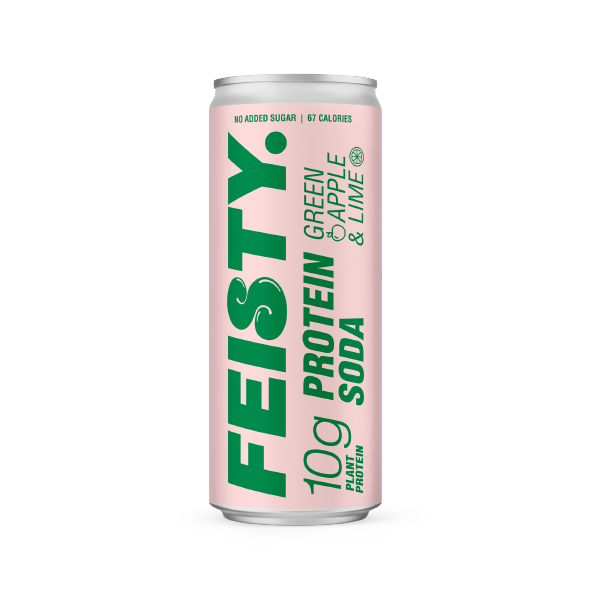
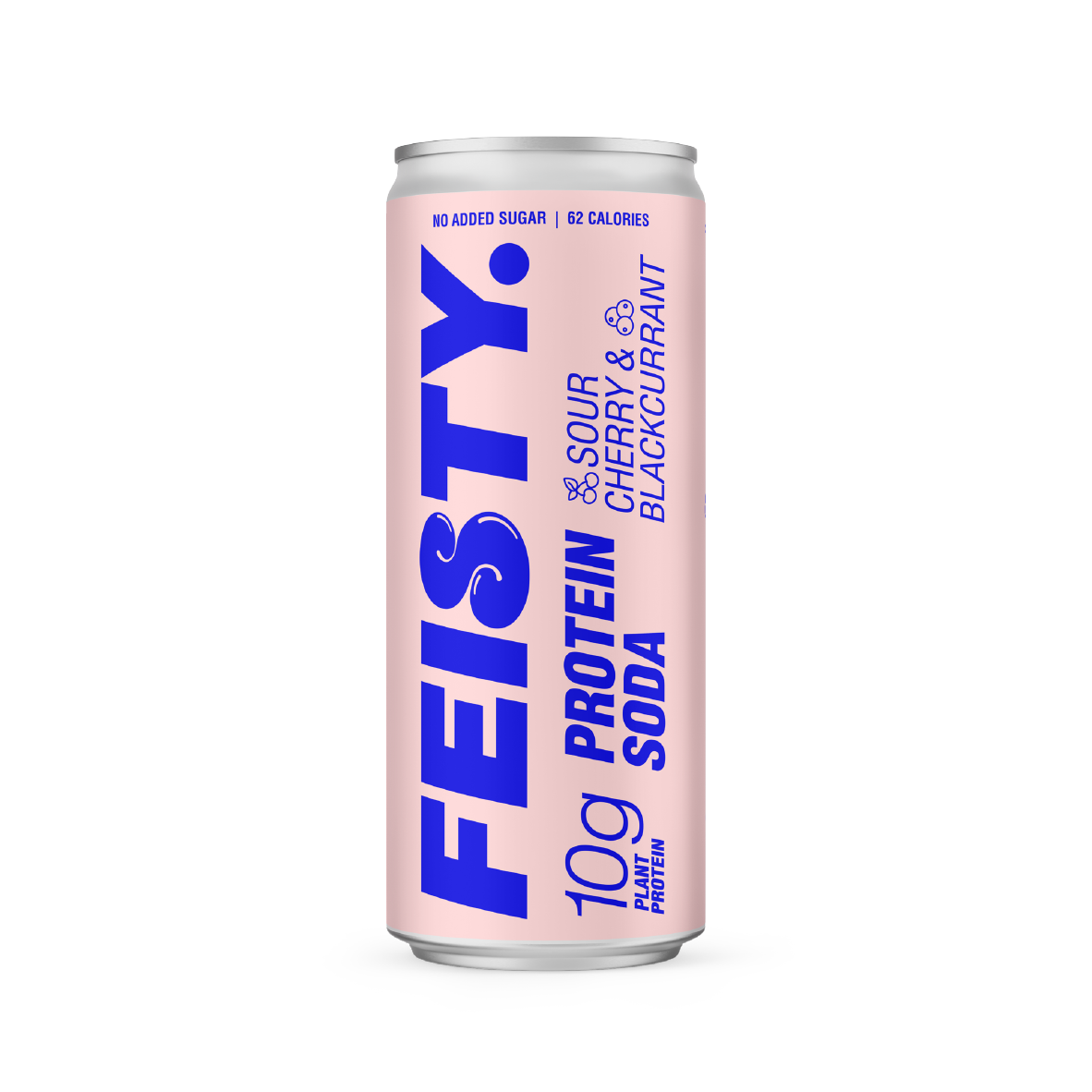
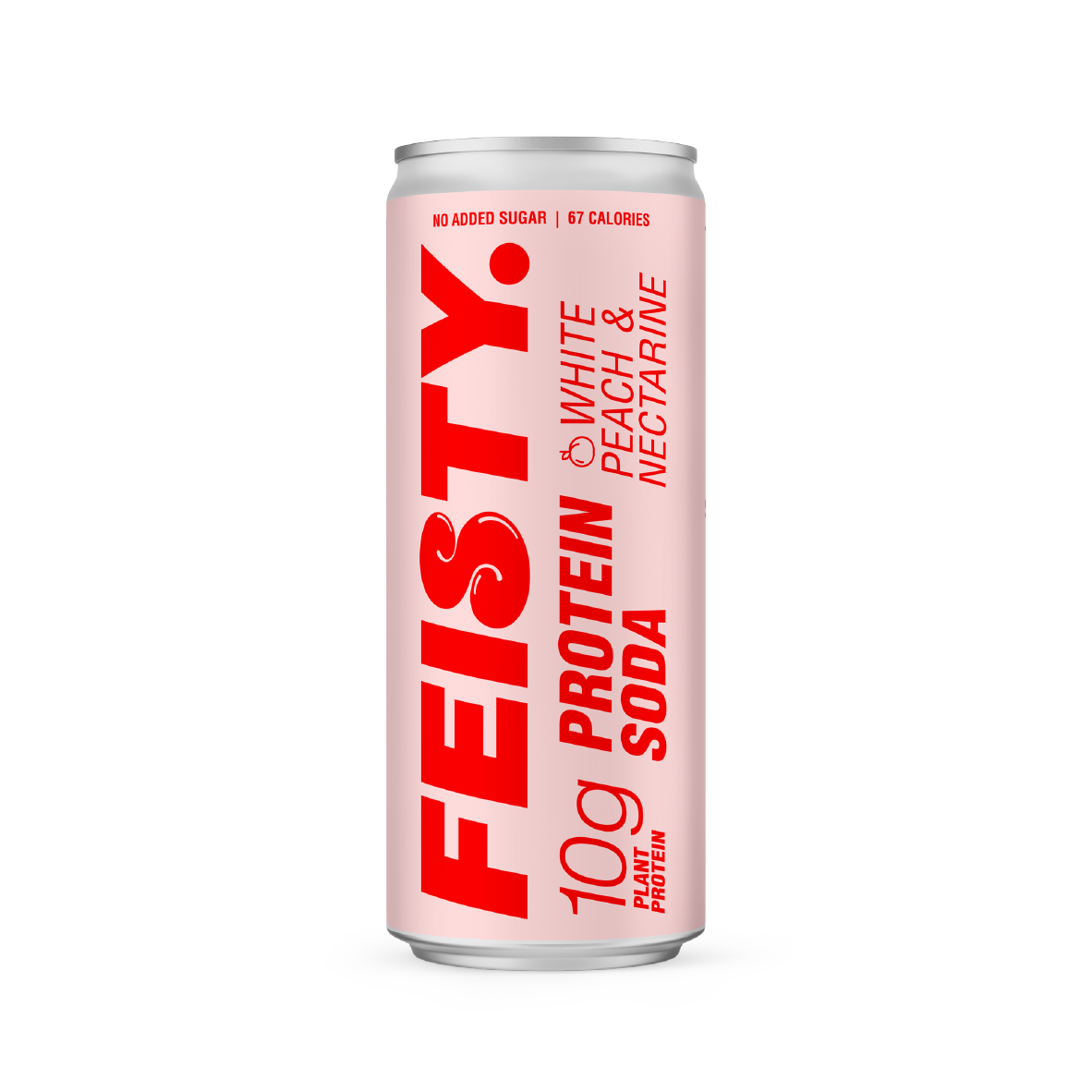
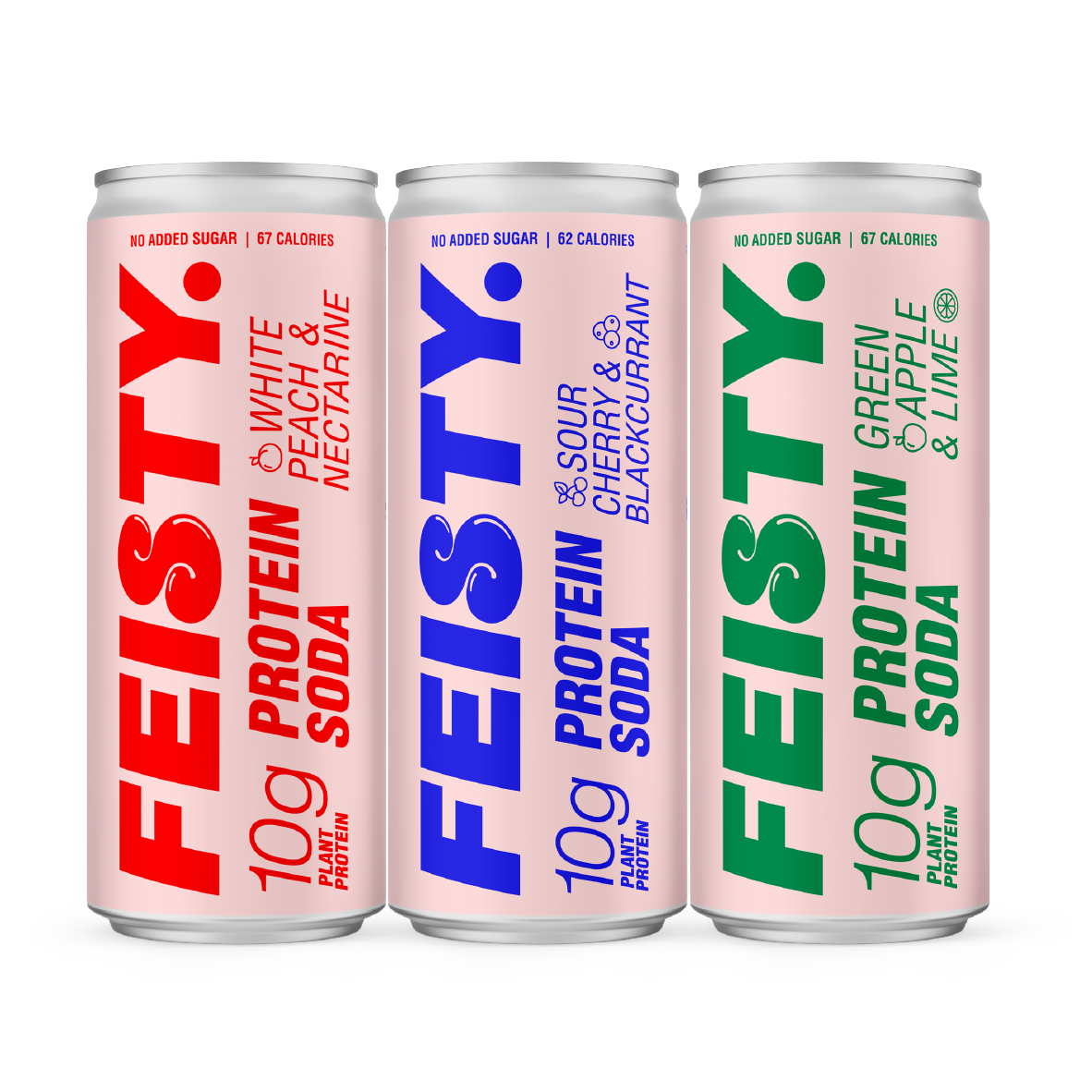
![Sicilian Lemon Lime Protein Soda [Limited edition]](http://feistydrinks.com/cdn/shop/files/FeistyDrinksProteinSoda10gramsSicilianlimelemon2_b8acb0e3-899b-45f9-bd87-d4215b80646d.jpg?v=1739397526&width=3000)
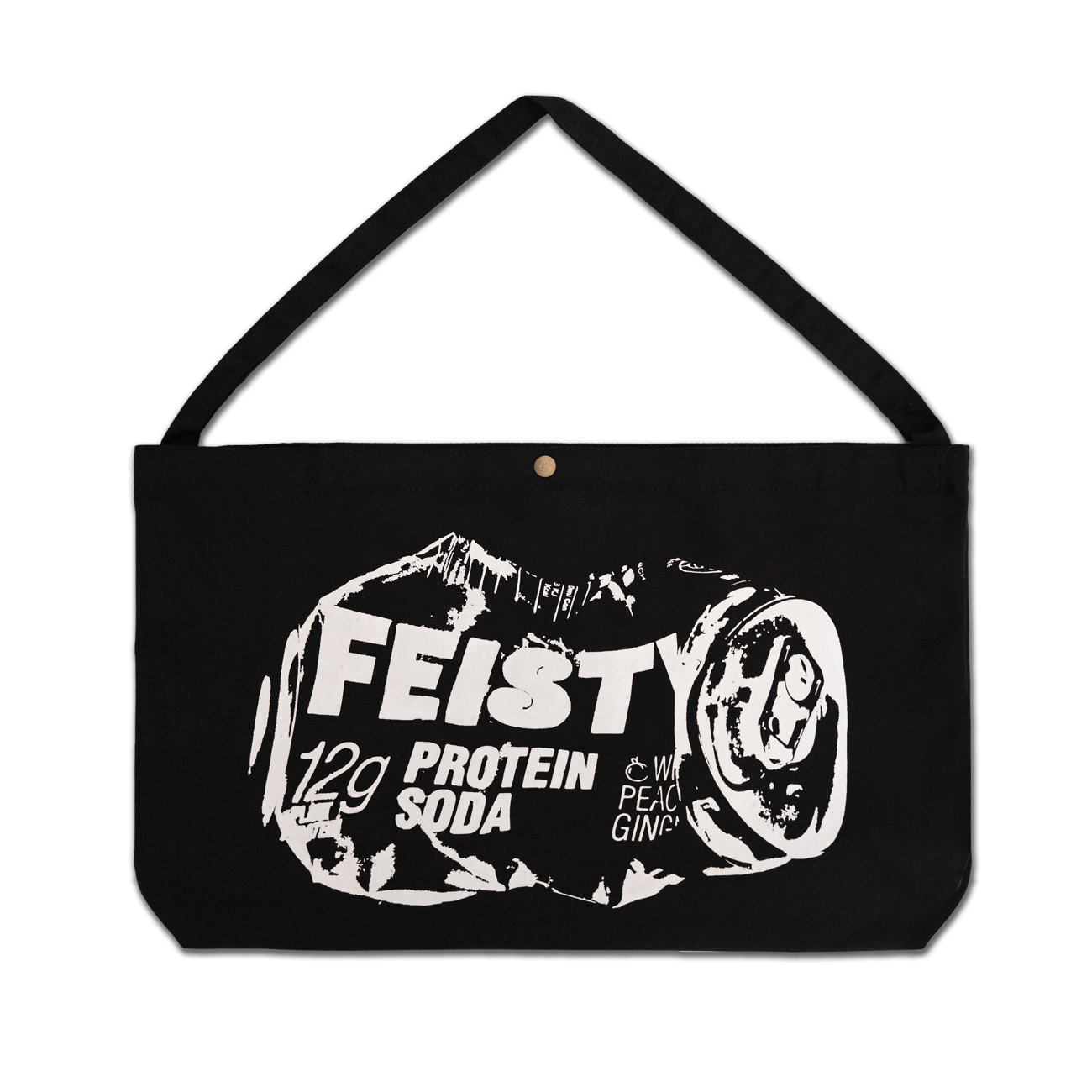


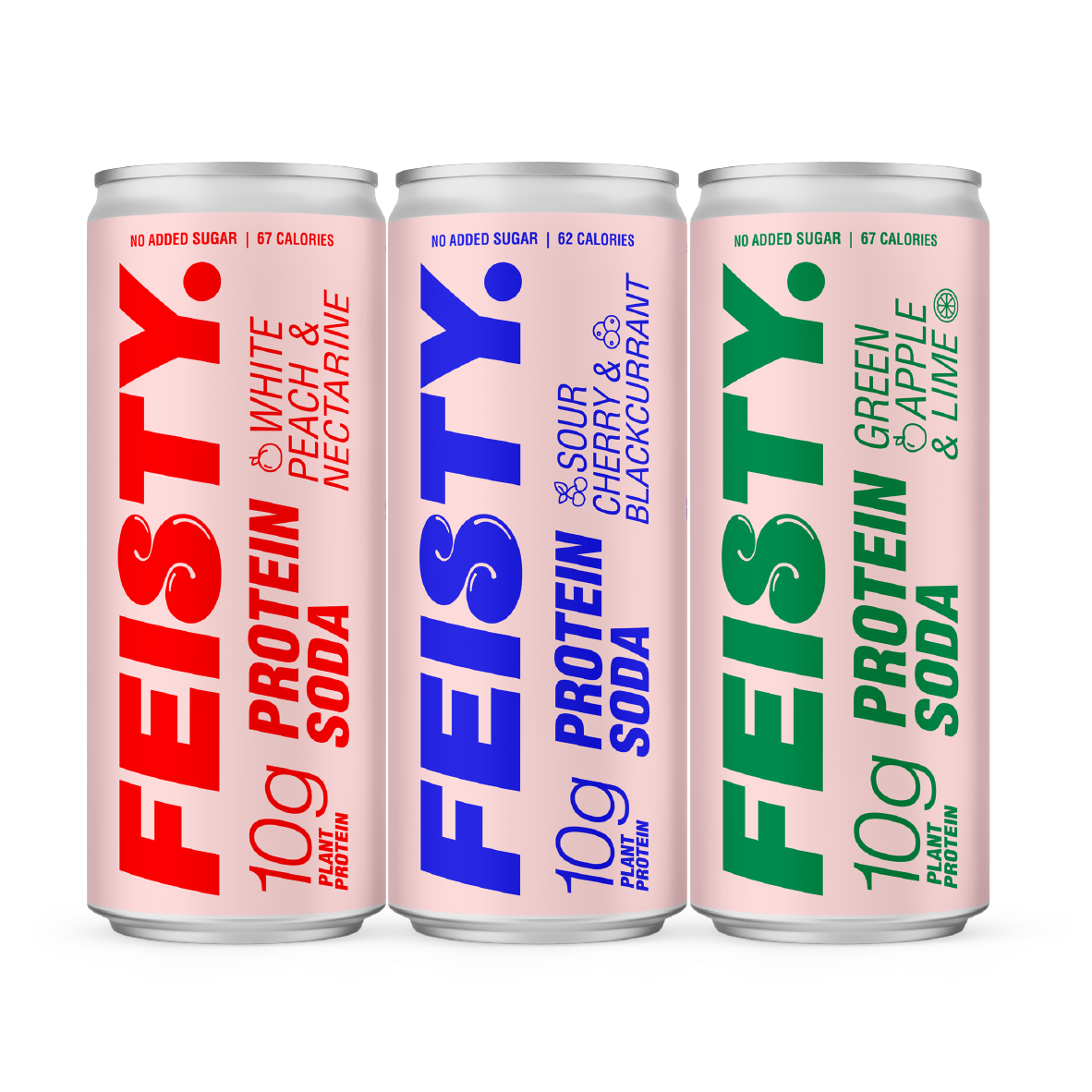
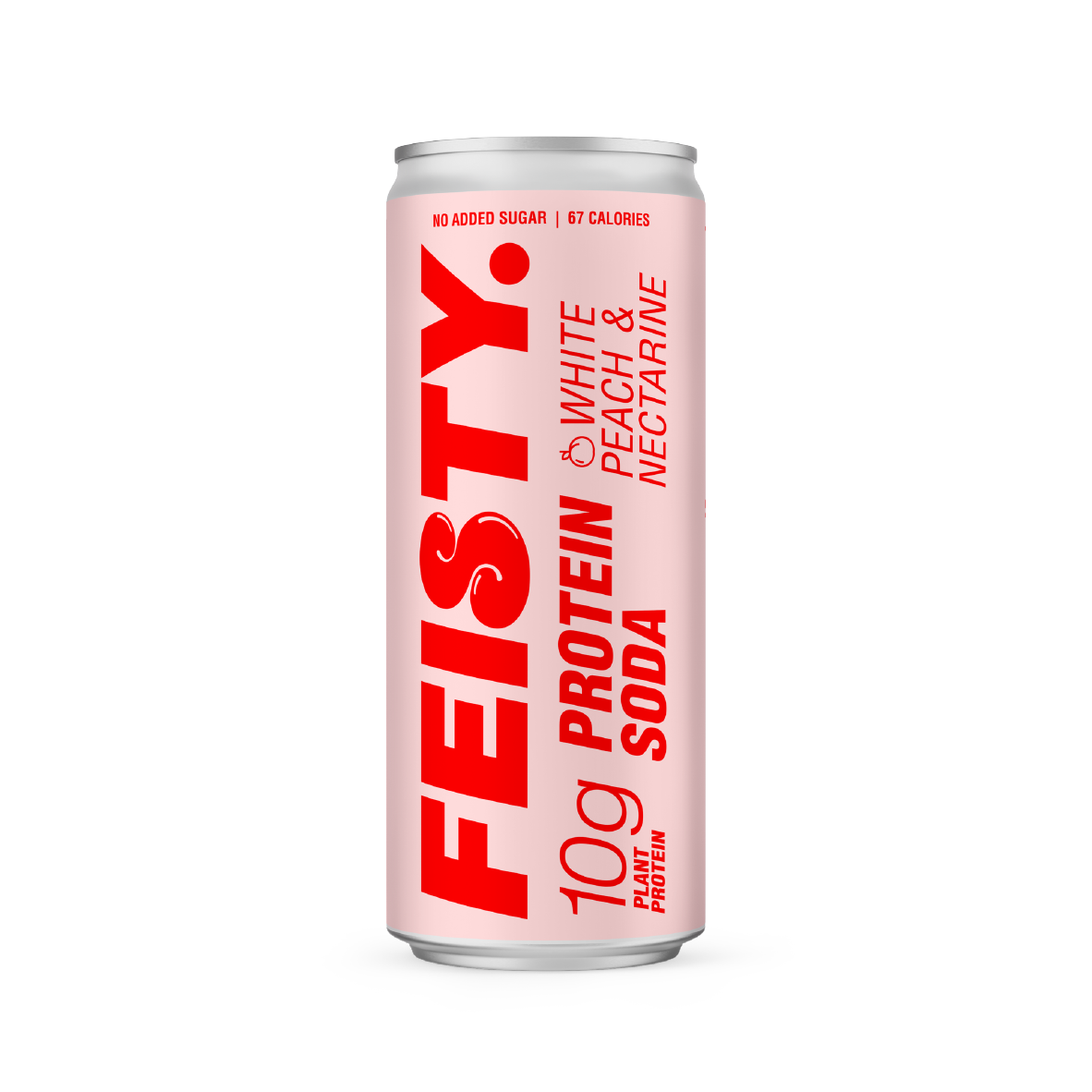
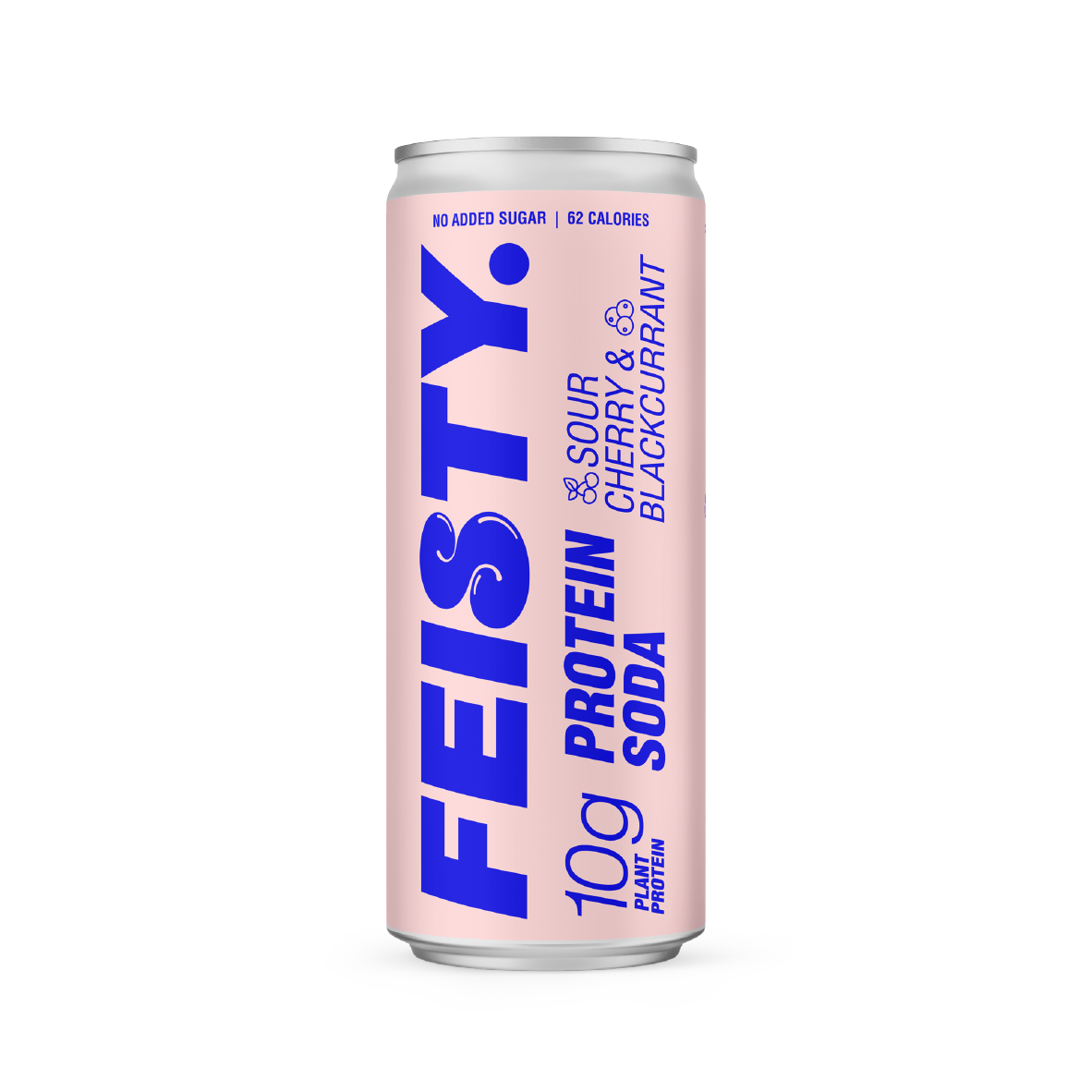
![Sicilian Lemon Lime Protein Soda [Limited edition]](http://feistydrinks.com/cdn/shop/files/FeistyDrinksProteinSoda10gramsSicilianlimelemon2_b8acb0e3-899b-45f9-bd87-d4215b80646d.jpg?v=1739397526&width=2000)
